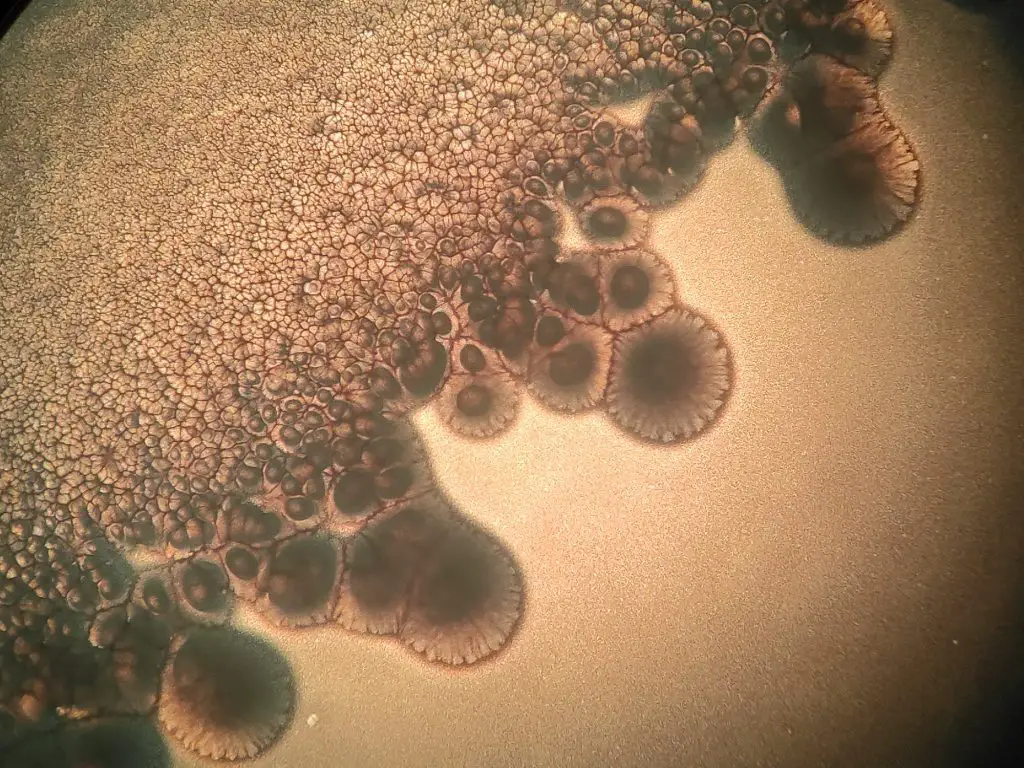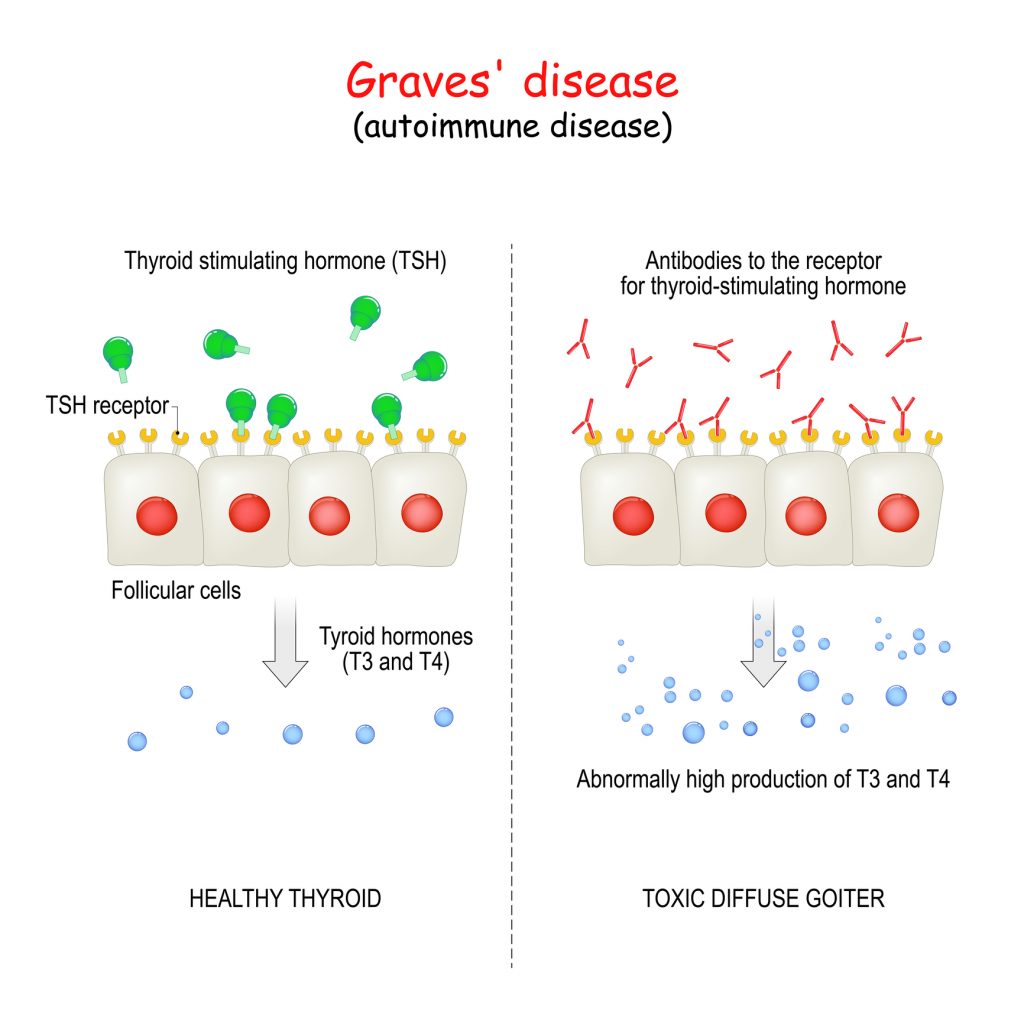Can Candida Cause Autoimmune Disease?

As an affiliate, we may earn a commission from qualifying purchases. We get commissions for purchases made through links on this website from Amazon and other third parties.
Candida overgrowth is a common problem, but many people don’t realize that it can also lead to autoimmune diseases.
Autoimmune diseases are on the rise and doctors still don’t know what’s causing them. If you’re one of the millions of people who suffer from an autoimmune disease, you’re probably looking for any answer that could help you get your life back. So how does Candida cause autoimmune disease?
Candida overgrowth may be a hidden cause of your autoimmune disease. If you’ve been struggling to find a solution to your health problems, consider treating your candida overgrowth and see if your symptoms improve.
The connection between Candida and Autoimmune disease
Did you know that if you have Candida overgrowth or an autoimmune disease, there’s a strong probability you’re also suffering from the other as a result of a leaky gut? Through the observation of thousands of patients, it has been discovered that Candida and autoimmune illness frequently coexist. This is because Candida overgrowth is not only common, but it also sets you up for autoimmune disease.
Unfortunately, traditional medicine practitioners typically overlook all of these diseases.
An autoimmune disease diagnosis takes an average of 5 years and 6-10 doctors, and doctors sometimes dismiss the symptoms of Candida overgrowth as evidence of stress, aging, or simply being a woman.
Many of them aren’t even aware that they have a leaky gut! This is due to the fact that the symptoms of Candida overgrowth and leaky gut are often ambiguous, affect various parts of the body, and overlap with other chronic disorders like an autoimmune disease.
You can conquer Candida overgrowth in a few simple steps and eradicate your symptoms if you recognize it as the cause of your symptoms and the function it plays in leaky gut autoimmune disease. You’ll also be putting yourself on the road to reversing or preventing autoimmune illness this way.
Let’s take a closer look at Candida overgrowth and how it might contribute to leaky gut and autoimmune illness. We’ll also talk about how to deal with it through dietary and lifestyle modifications.

Candida Overgrowth: What It Is, How You Get It & Symptoms
Candida is a yeast-like fungus that lives naturally in your mouth and intestines. Candida is beneficial to your digestive health and aids in the absorption of nutrients at tiny levels.
Your gut microbiome, which consists of beneficial bacteria, bad bacteria, and Candida, should be in a balanced state. In fact, think of your microbiome as a rainforest, with a diverse range of species coexisting in perfect harmony.
A diet strong in carbohydrates and sugar, on the other hand, can weaken your immune system. Medications such as birth control pills or antibiotics, as well as chronic stress, can all have an impact on your immune system. Candida can grow out of control and become a problem if the bacteria balance is disrupted.
Symptoms of Candida overgrowth
Candida overgrowth can cause a variety of unpleasant side effects as well as major health problems, such as:
- Toenail fungus, athlete’s foot, and ringworm are examples of fungus infections affecting the skin and nails.
- Oral thrush is a type of thrush that affects the mouth
- Infections of the vaginal area, itching of the vaginal area, infections of the urinary tract, and itching of the rectal area
- ADD/ADHD symptoms include brain fog, trouble concentrating, lack of attention, and poor memory.
- Psoriasis, eczema, rashes, hives, and tinea versicolor are examples of skin ailments.
- Bloating, constipation or diarrhea are all symptoms of digestive problems.
- Anxiety, despair, and mood swings are all examples of mood disorders.
- Tiredness, exhaustion, chronic fatigue, or fibromyalgia are all symptoms of fibromyalgia.
- Sugar and refined carbohydrate cravings are intense.
- Ears that itch
- Seasonal allergies that are severe
- Deficiencies in nutrients
- Sinus infections that recur
- Hashimoto’s, rheumatoid arthritis, lupus, ulcerative colitis, scleroderma, and multiple sclerosis are examples of autoimmune illnesses.
The Leaky Gut, Candida, and Autoimmune Connection
Although Candida resides in your gut, many of the symptoms it causes affect other parts of your body. So, how does a fungus in your gut cause so much devastation in your body? Candida overgrowth causes leaky gut by breaking down the intestine’s walls.
Your gut lining is only one cell layer thick, which may surprise you. Tight connections hold the cells together. These intersections function as a drawbridge, allowing teeny-tiny boats (micronutrients in food) to pass beneath the bridge without difficulty. This is a crucial system that lets key nutrients from your diet enter your bloodstream.
Once you have one autoimmune disease, you are three times more likely to develop another.
Multiple autoimmune syndrome, NCBI
Candida and Leaky Gut
An excess of Candida, on the other hand, destroys your gut lining, causing the drawbridge to rise, enabling larger vessels, such as toxins, germs, proteins, and partially digested food particles, to pass through. You have a leaky gut when this happens. It can cause a variety of symptoms, many of which are similar to Candida overgrowth symptoms.

Signs of a leaky gut
There are a few key signs that you may have a leaky gut. These include:
- Pain
- Fatigue
- Digestive issues, including diarrhea, constipation, gas, bloating, IBS and IBD
- Brain fog, memory problems
- Nutritional deficiencies
- Skin problems, including eczema, rosacea, and rashes
- Headaches
- Intense cravings for refined sugar, carbs, and processed foods
- Mood disorders
- Joint pain and arthritis
- Fibromyalgia
- Thyroid conditions
- Autoimmune conditions
Leaky Gut and Autoimmune Disease
Even more serious than the symptoms listed above, a leaky gut puts you at risk for a variety of chronic disorders, including autoimmune disease. In my books, I discuss how Harvard researcher Alessio Fasano discovered that a leaky gut is a crucial precursor to autoimmunity.
Food particles, poisons, viruses, and bacteria that have not been digested pass past your gut wall and into your bloodstream. This causes your immune system to launch an inflammatory response in an attempt to combat the alien “invaders.” Your immune system goes into overdrive while your gut stays leaky and invaders continue to escape, sending more antibodies to fight the invaders and creating more inflammation.
Many of the symptoms listed above are exacerbated by persistent inflammation. Your immune system becomes strained, weakened, and confused as time passes. It begins to shoot less correctly until your own tissues are targeted and you get an autoimmune illness.
The sort of autoimmune illness that develops is defined by the tissues that are attacked. Rheumatoid arthritis might develop if your joints are inflamed. When you have psoriasis or scleroderma, your skin is being attacked, and so on.
Autoimmune Disease and Molecular Mimicry
To make matters worse, many of the compounds that seep into your bloodstream resemble the cells in your body. You can imagine how perplexed your immune system must be! In an attempt to defend you, your immune system’s mistaken identity, known as molecular mimicry, causes your immune system to target your body’s organs and tissues.
The most well-known examples are Hashimoto’s and Graves’ disease, both of which are thyroid autoimmune disorders. Assume you’re eating a piece of bread. Gluten in bread contains proteins that resemble those found in thyroid tissue. When gluten enters your bloodstream through a leaky gut, your immune system attacks the gluten proteins.
Your immune system, however, attacks your thyroid by mistake because of a similar cell structure. Thyroid autoimmune disease might develop as a result of your body’s ongoing inflammation and attacks on your thyroid.

Studies into the connection between Candida and Autoimmune Disease
One study found that people with autoimmune diseases were more likely to have candida overgrowth than people without autoimmune diseases. The study also found that treating candida overgrowth in people with autoimmune diseases helped to improve their symptoms.
Another study looked at the link between celiac disease and candida overgrowth. The study found that people with celiac disease were more likely to have candida overgrowth than people without the disease. The study also found that treating candida overgrowth in people with celiac disease helped to improve their symptoms.
Overcoming Leaky Gut, Candida, and Autoimmune Disease
To repair the damage and overcome your autoimmune disease, you must address the underlying Candida overgrowth that caused your leaky gut in the first place. A leaky gut, if left untreated, can cause more damage as well as other autoimmune illnesses.
Once you’ve had one autoimmune disease, you’re three times more likely to get another. If you have Candida overgrowth and/or leaky gut but haven’t been diagnosed with an autoimmune disease, it’s critical that you address these issues to avoid autoimmune disease and re-establish a healthy gut flora.
Three ways to beat Candida overgrowth
The good news is that by overcoming Candida overgrowth you can repair your gut and reverse or prevent autoimmune disease by using a 3-step approach to help you beat Candida overgrowth for good.
Step one is to starve the yeast by eliminating the foods that feed it. This includes cutting all sugar and alcohol. You’ll also limit carbohydrates such as fruit, starchy vegetables, grains, and legumes to no more than 1 cup per day. When it comes to fresh produce, stick to leafy greens or other less starchy veggies.
Step two is to attack the yeast using probiotic supplements that destroy Candida’s cell walls. Preferably use a probiotic containing Caprylic Acid, a short-chain fatty acid derived from coconut that pokes holes in the yeast cell walls.
Finally, step three is to repopulate your gut with the good bacteria that keep yeast in check. We recommend a probiotic that has 100 billion colony forming units (CFUs) of high-quality, beneficial bacteria while dealing with Candida.
This will not only assist restore the healthy balance of your gut, but it will also aid in the repair of your gut lining. Candida will not be able to escape into your bloodstream and cause havoc in other parts of your body if your gut lining is healthy.
In conclusion
Can Candida Cause Autoimmune Disease?
There is a growing body of research that suggests there may be a link between candida overgrowth and autoimmune disease. While more studies are needed to confirm this link, if you have been diagnosed with an autoimmune disease, it may be worth looking into whether or not candida overgrowth is playing a role in your condition.
There are many ways to treat candida overgrowth, so if you think this may be a factor in your disease, talk to your doctor about treatment options.
The exact cause of autoimmune diseases is not known, but they are thought to be caused by a combination of genetic and environmental factors. Candida overgrowth is a condition that occurs when there is an overgrowth of the Candida albicans fungus in the body.
This overgrowth can occur for a variety of reasons, including taking antibiotics, having a weakened immune system, or eating a diet high in sugar. While candida overgrowth is not thought to cause autoimmune disease, there is some evidence that the two conditions may be linked.
A quick reminder ..
Probiotics.tips aim to provide the most up-to-date information, help, and advice for YOU to make informed decisions about how Candida causes autoimmune disease. If you are unsure or uncertain and require more clarity, please reach out to us and we will gladly come back and advise you as best we can.
The best means to reach us is via email at info@probiotics.tips or fill out the form on our Contact Us page – click here.
About Us
Our goal is to empower you with concise probiotic guidance for a healthier gut. With expert advice, we provide the knowledge to improve your well-being and navigate the world of probiotics efficiently, ensuring you achieve optimal gut health.
- Can You Take Probiotics While Water Fasting?
- Does Fasting Help Microbiome Diversity and Functionality?
- Does Fasting Help Your Bowels
- Does Fasting Help Probiotics? Understanding Gut Health Benefits
- Does Fasting Help the Gut: Understanding the Impact on Digestive Health
Disclaimer
As an affiliate, we may earn a commission from qualifying purchases. We get commissions for purchases made through links on this website from Amazon and other third parties.
Check these out on Amazon








